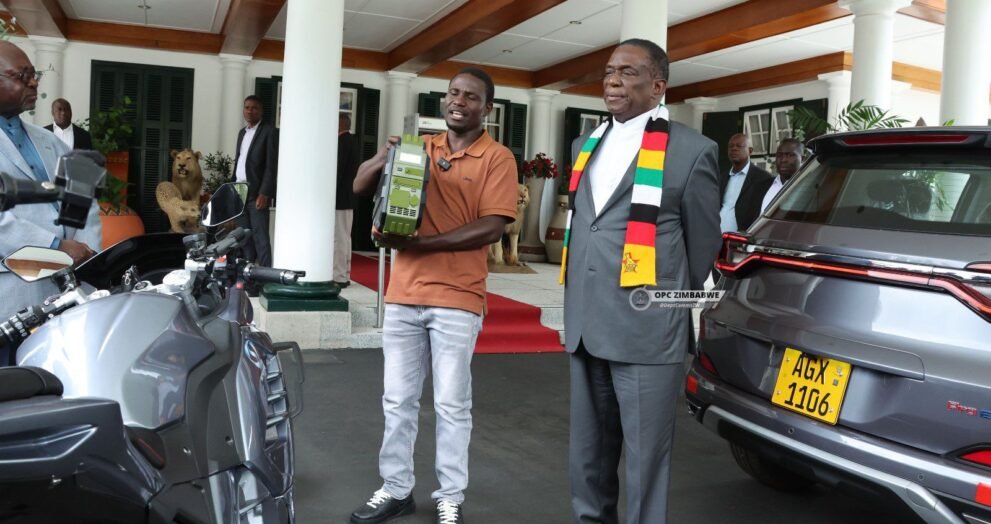ZIMBABWEAN INVENTOR WOWS PRESIDENT MNANGAGWA WITH GROUNDBREAKING RADIO WAVE TECHNOLOGY
Zimbabwean inventor Maxwell Chikumbutso has unveiled a revolutionary technology that harnesses radio waves to power generators, motorbikes, and motor vehicles. Chikumbutso showcased his innovative microsonic energy device, which converts radio frequencies to pure energy, to President Emmerson Mnangagwa at State House. The President was impressed by the invention, praising Chikumbutso as a “brilliant inventor” whose work is a “first of its kind” globally. “Such talent needs to be cultivated and nurtured for the benefit of the nation,” Mnangagwa said. He also described the invention as a perfect actualization of the mantra “Nyika Inovakwa Nevene Vayo.” Chikumbutso’s technology uses naturally occurring radio frequencies available anywhere on earth and sea. His products, including a motor vehicle named the Saith, have generated significant interest worldwide and are set to be launched on February 10 in Zimbabwe. The Saith, developed in partnership with a Chinese company, boasts an unlimited drive range, top speed of 220km/h, and features a self-park and drive system, with manufacturing costs at US$14,000 per unit. Plans are underway to establish a vehicle manufacturing plant in Zimbabwe for vehicles using this technology.














































































































































































































































































































































































































































































































































































































































































































































































































































































































































































































































































































































































































































































































